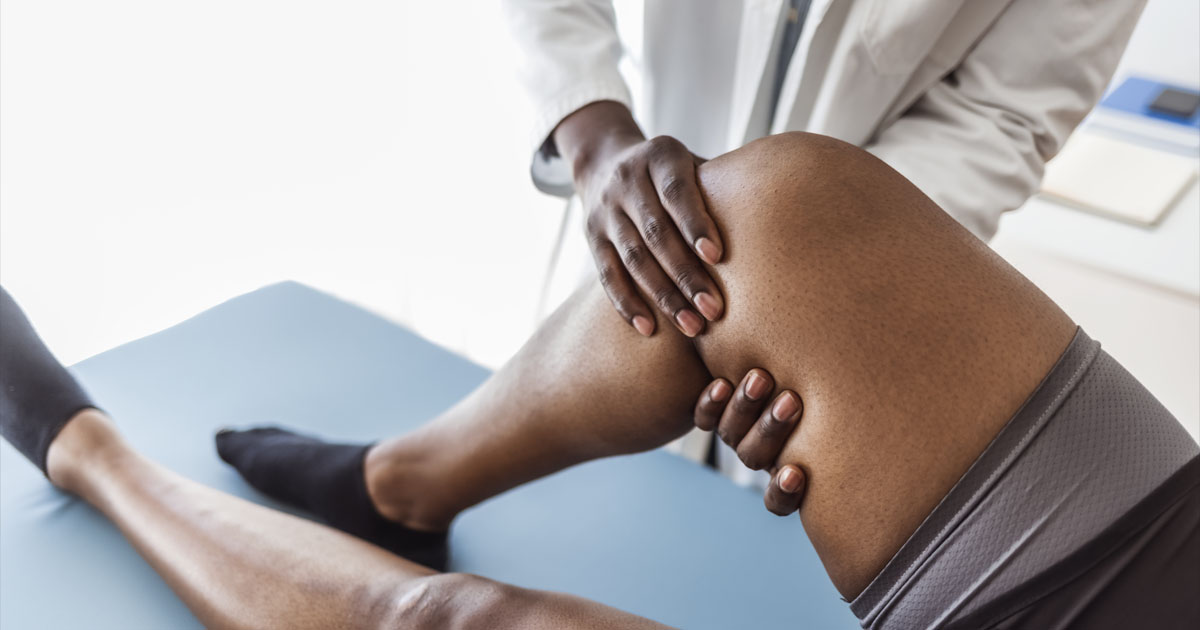The Road to Living Pain-Free: Knee Replacement Surgery at Allegheny General Hospital

If you’ve been living with knee pain and haven’t found a treatment that works, knee replacement surgery at AHN Allegheny General Hospital might be the answer.
At the AHN Orthopaedic Institute at AGH, a team of experienced surgeons and health specialists work together to help relieve your pain and improve how you move and live.
Reasons for knee replacement surgery
Knee replacement surgery is usually the last option when other treatments have not helped to relieve pain.
“Knee replacement isn’t just about fixing a joint — it’s about giving people their lives back,” said Julius Huebner, MD, orthopaedic surgeon at AGH. “When pain limits your ability to move, sleep, or enjoy everyday activities, surgery can be a solution for real relief.”
Signs you may benefit from surgery include:
- You have knee pain that lasts at least a few months and doesn’t get better with over-the-counter pain medication.
- You are limping or having trouble walking.
- You find daily activities, like climbing stairs, getting out of a chair, or sleeping difficult.
These symptoms are often caused by medical conditions that knee replacement surgery can treat, including:
- Arthritis (joint inflammation)
- Osteoarthritis (breakdown of cartilage that cushions your knee joint)
- Complications from a bone infection
- Bone cancer or other bone diseases
Getting ready for surgery
Whether you’re referred to AGH through your primary care physician or someone you know, or you do a self-referral, the surgery team will evaluate your symptoms and recommend the best option. If surgery is right for you, your care team may suggest you make lifestyle changes leading up to your procedure.
Some changes that can help to reduce risks and help your body heal well after surgery include:
- Exercising, eating healthy, and losing weight
- Stopping nicotine use four weeks before surgery
- Practicing proper dental care to avoid infections
What happens during surgery
There are two main types of knee replacements:
- Partial knee replacement – Only the damaged part of your knee is replaced, often just one side or the area behind the kneecap.
- Total knee replacement – The entire joint is replaced, including the upper and lower parts of the knee.
At AGH, most patients benefit from knee replacements involving robotic methods, where surgeons use advanced tools like Mako™ robotic surgery technology to complete the procedure.*
“No two knees — and no two patients — are exactly the same,” Dr. Huebner said. “With robotic-assisted surgery, we’re able to customize each procedure to the patient’s unique anatomy. That precision means better outcomes, fewer complications, and a smoother recovery.”
Here is what happens during a knee replacement surgery:
- You’ll get anesthesia before surgery, so you won’t feel pain.
- Your leg will be carefully positioned for the procedure.
- A nerve blocker may be used in your knee to help manage pain during and after the procedure.
- Your surgeon will replace the damaged joint — either partially or fully — with a new artificial knee made from strong metal and plastic materials.
Healing after surgery
Most knee replacement patients at AGH go home the same day as their surgery. Your team will continue to check in with you after the procedure, with follow-up appointments scheduled for two weeks, six weeks, and one year after surgery.
You may have side effects from the knee replacement, like:
- Stiffness
- Numbness on one side of the knee
- Clicking sounds from the artificial knee
Your doctors will work closely with pain management specialists at AGH to manage any pain or side effects. You may also get at-home physical therapy through AHN’s Healthcare@Home program.
Take the first step toward pain relief
Knee replacement surgery might be what you need to finally feel better. Reach out to the AHN Orthopaedic Institute at Allegheny General Hospital to find out if it’s right for you.
Mako™ is a registered trademark of Stryker and is used with permission.
About Julius Huebner, MD
Dr. Huebner, orthopaedic surgeon, treats patients with hip and knee arthritis. His special clinical interests include adult hip reconstruction and adult knee reconstruction. He is skilled at performing direct anterior hip replacement, robotic total knee arthroplasty, and robotic partial knee arthroplasty.
At the Orthopaedic Institute at Allegheny General Hospital (AGH), our experts use the most advanced technology to help you regain strength and flexibility while reducing pain. We’re the primary medical provider for orthopaedic and rehabilitation care for the Pittsburgh Riverhounds professional soccer team and several local school athletic teams.

